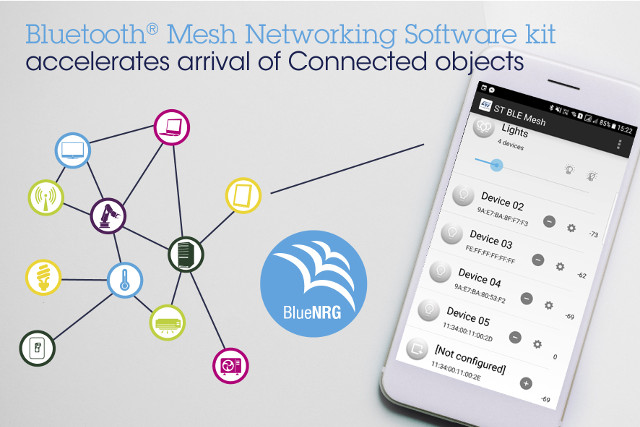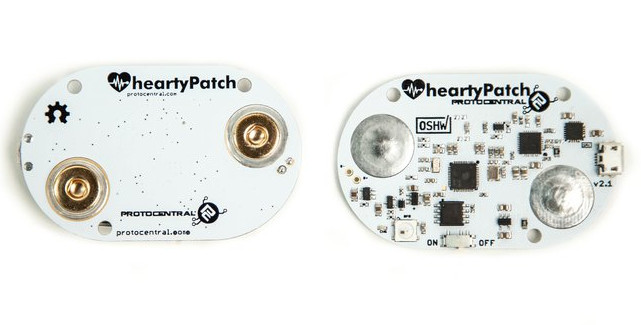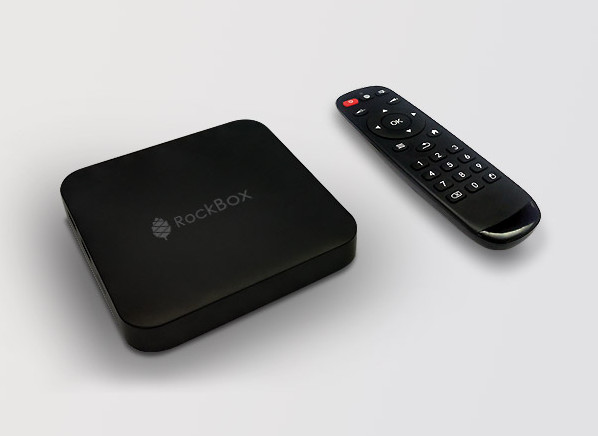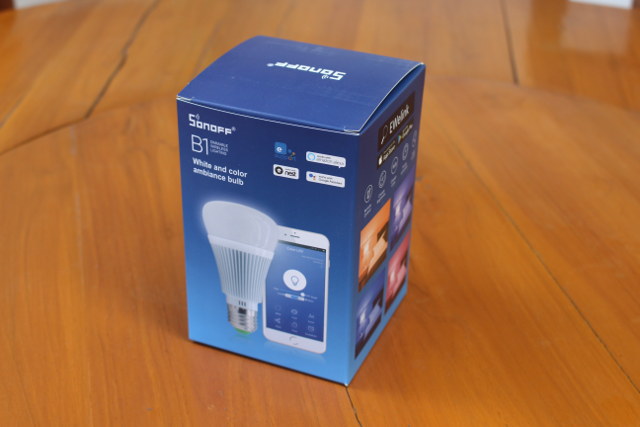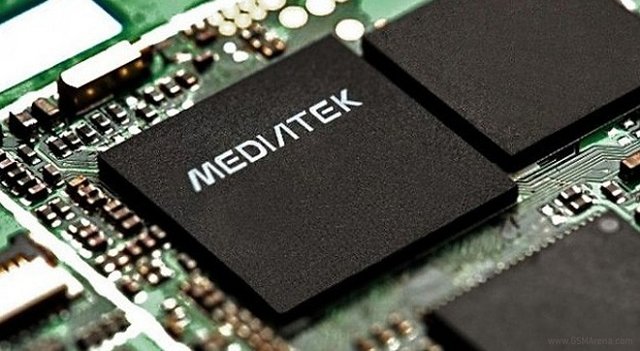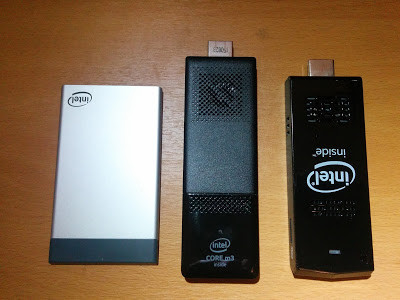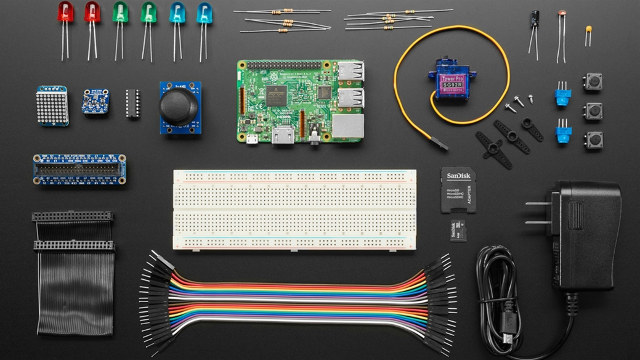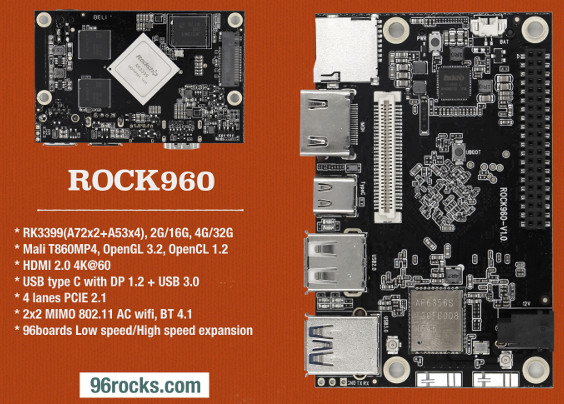Earlier this summer, the Bluetooth SIG announced Bluetooth Mesh, which supports many-to-many (m:m) device communications for up 32,767 unicast addresses per mesh network (in theory), and is compatible with Bluetooth 4.0 or greater hardware. Several companies immediately unveiled Bluetooth Mesh SDK at the time including Qualcomm, Nordic Semi, and Silicon Labs. ST Micro has now unveiled their own BlueNRG-MESH SDK which the company claims is “the market’s only three-part SDK that provides two app developer packages for Android and iOS, and the embedded-development software for building smart objects such as light fittings and sensors”. Sadly, details about the SDK are near inexistent now, except – as one would expect – BlueNRG-MESH SDK will work with ST BlueNRG Bluetooth low energy wireless network processor based on an ARM Cortex M0 core, and corresponding development kits. [Update: STSW-BNRG-Mesh page has many more details about the SDK including the architecture diagram below. ] […]
HeartyPatch is an Open Source Wireless ECG Patch Powered by ESP32 WiSoC (Crowdfunding)
Smart health gadgets will soon have a bigger part to play in our lives, especially for health monitoring. It mainly started with fitness trackers, but now we are starting to see connected devices such as blood pressure monitors, including the upcoming watch like Omron HeartVue, thermometer, scales, vital sign monitoring systems, certified medical SBC‘s to allow engineers to developer their own medical applications, and even open source surgical robots. HeartPatch is one of those medical board that specifically aims at measuring ECG data, and sent it over Bluetooth or WiFi thanks to Espressif ESP32 WiSoC. HeartPatch specifications: SoC – Espressif Systems ESP32 dual core Tensilica LX6 processor with Wi-Fi/Bluetooth ECG Chip – Maxim MAX30003 analog front-end USB – 1x micro USB connector for programming, data, power, and battery charging Debugging – USB-UART bridge based on CP2104 Misc – Onboard Snap-on Buttons for disposable electrode pads, RGB LED, Battery – 450 […]
Popcorn Hour RockBox Basic TV Box To Leverage ROCK64 Board Firmware Images
Pine64 launched ROCK64 development board powered by Rockchip RK3328 processor a few months ago. The board exposes fast interfaces like Gigabit Ethernet and USB 3.0, and support 4K video playback, and runs Android 7.1 or various Linux distributions such as Ubuntu 16.04 and others. Pine64 and Cloud Media companies share some of the same owners, and RK3328 being a TV box processor, it should not come as a surprise that Cloud Media has introduced Popcorn Hour Rockbox Basic TV box based on the processor. While the box is running Android 7.1 by default, it will also be support alternative operating systems such as LibreELEC, Android TV OS, Ubuntu, etc… thanks to the work of Pine64/Rock64 community. Popcorn Hour RockBox Basic specifications are quite standard: SoC – Rockchip RK3328 quad core Cortex A53 processor @ 1.5 GHz with Mali-450MP2 GPU System Memory – 1 GB LPDDR3 Storage – 8 GB eMMC […]
Sonoff B1 Smart Light Bulb Review – Part 1 : eWeLink Android App and Teardown
ITEAD Studio has a popular family of home automation devices call Sonoff with WiFi switches, smart sockets, RF to WiFi bridges and so on. All WiFi devices are based on Espressif ESP8266 or ESP8285, and while the company provide a stock firmware working with eWelink app, at least two communities have formed around Sonoff and other similar devices providing two open source firmware alternatives: ESPurna and Sonoff-Tasmota. The company has sent me Sonoff B1 smart RGB light bulb for review. Today, I’ll check out the light with eWelink app for Android, and do a teardown, before trying one of the open source firmware in the second part of the review. Sonoff B1 Unboxing Some Chinese products come in a blank cardboard boxes, but Sonoff’s light bulb comes with in a nice looking retail package that would look good on store’s shelves. One of the side lists the specifications with an […]
Mediatek MT6739 Launched for Entry-Level 4G Smartphones with 18:9 Displays
India Mobile Congress 2017 took place in New Delhi this week, and at the event, Mediatek officially launched Helio P23 processor (in India), as well as a new MT6739 SoC with a quad core Cortex A53 processor, Imagination PowerVR GE8100 GPU, an a LTE Cat.4/5 modem for entry level 4G LTE smartphones. Mediatek MT6739 specifications: CPU – 4x ARM Cortex-A53 cores clocked up to 1.5GHz GPU – Imagination PowerVR GE8100 GPU @ 570 MHz with System Memory – LPDDR3-667MHz up to 3GB Storage – eMMC 5.1 Flash Display – up to 1440 x 720 (18:9 aspect ratio) Camera – 13MP, dual camera supported Video Decoding – 1080p @ 30FPS, H.264/HEVC Video Encoding – 1080p @ 30FPS, H.264 Modem – 4G LTE Cat. 4 DL / Cat. 5 UL (FDD/TDD) up to 150Mbps download, 50Mbps upload, CDMA2000, L+G, L+W/L+L DSDS, eMBMS, HPUE, 600MHz band supported; Dual VolTE Connectivity: Wi-Fi 802.11a/b/g/n, Bluetooth […]
Intel Compute Card and Dock Hands On, Windows 10 and Ubuntu Benchmarks
We’ve recently seen Intel introduced Dock DK132EPJ for their Compute Cards, and released some pricing info. Ian Morrison (Linuxium) got sent a full kit by Intel with the dock and Compute Card CD1M3128MK powered by a dual core / quad Core m3-7Y30 processor with 4GB RAM, 128GB PCIe SSD, and Intel Wireless-AC 8265 module. You can get the full details in Ian’s post, but I’ll provide a summary of the key points here. While the compute card and dock are thinner than most product, the computer card is quite wider than TV sticks, and the dock larger than an Intel NUC. It also comes with a fan, and cooling works well with maximum CPU temperature under being 70°C. The Compute Cards do not come with any operating system, but you get to the BIOS easily, and install Windows or Linux distributions. Ian’s started with Windows 10 Enterprise Evaluation, and ran […]
Google Cloud IoT Core Enters Public Beta, Various Devkits Available
Back in May, I wrote about Allwinner R18 based Banana Pi BPI-M64 Board with Google Cloud IoT Core support, as Google unveils the new cloud service during Google I/O. However, at the time it was only available to selected partners, and Google has recently launched the public beta making their IoT device management platform available to all. I first learned about this through an ARM community blog post announcing availability of the ARM-based IoT Kit for Cloud IoT Core on Adafruit using Raspberry Pi 3 board, a breadboard, and various modules that can be managed through Google services. But that are plenty of other IoT kits or boards for Google Cloud IoT Core including: Allwinner R18 based Pine A64-LTS, Banana Pi BPI-R18 Marvell based MACCHIATObin, and ESPRESSOBin boards Mongoose OS IoT starter kit with ESP32 board( instead of Raspberry Pi 3) Grove IoT Commercial Developer Kit based on Intel NUC […]
Rock960 Board is a 96Boards Compliant Board Powered by Rockchip RK3399 SoC
So it looks like Rockchip is soon going to join 96Boards family with Rock960 board. Developed by a Guangzhou based startup called Varms, the board will be powered by Rockchip RK3399 hexa-core SoC, and comply with 96Boards CE specifications. Rock960 board preliminary specifications: SoC – Rochchip RK3399 hexa-core big.LITTLE processor with two ARM Cortex A72 cores up to 1.8/2.0 GHz, four Cortex A53 cores @ 1.4 GHz, and ARM Mali-T860 MP4 GPU with OpenGL ES 1.1 to 3.2 support, OpenVG1.1, OpenCL 1.2 and DX 11 support System Memory – 2 or 4GB RAM Storage – 16 or 32GB eMMC flash + micro SD card Video Output – 1x HDMI 2.0 up to 4K@60 Hz with CEC and HDCP Connectivity – WiFi 802.11ac 2×2 MIMO up to 867 Mbps, and Bluetooth 4.1 LE (AP6356S module) with two on-board antennas, two u.FL antenna connectors USB – 1x USB 2.0 host port, 1x […]


